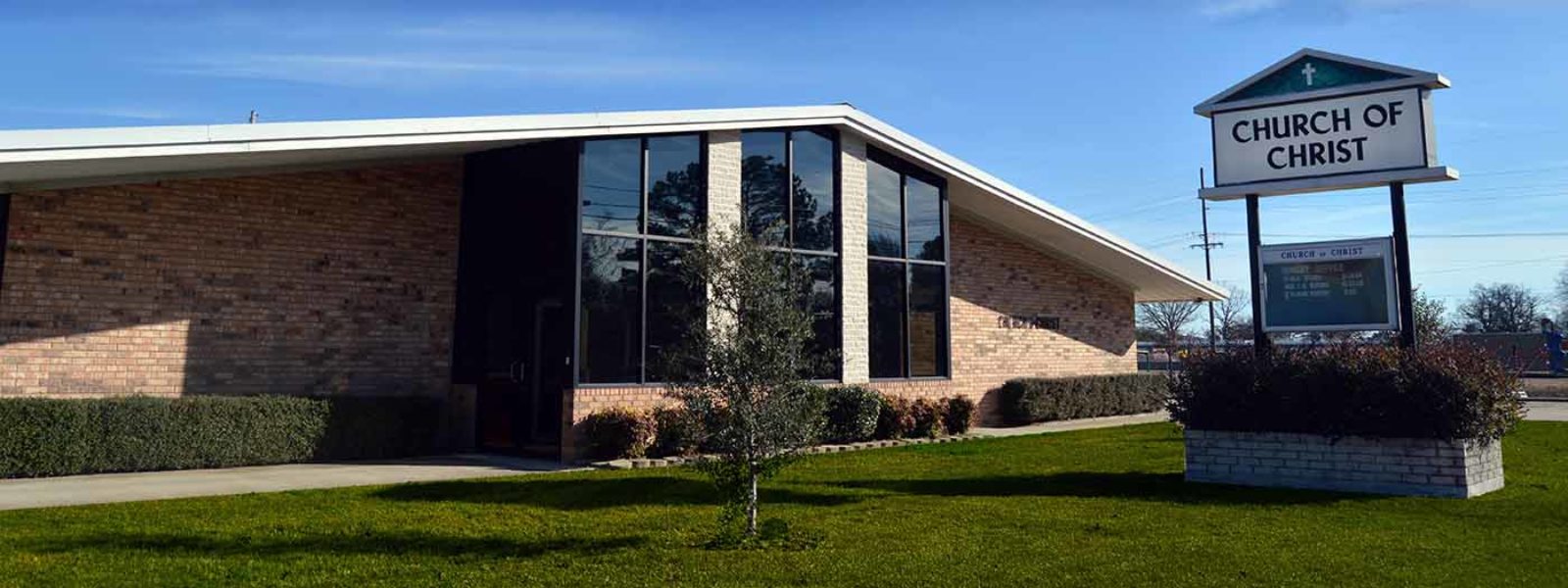If you are sick, does God expect you to take the Lord’s Supper to your house?
Podcast: Play in new window | Download
Subscribe: RSS
“If you are sick, does God expect you to take the Lord’s Supper to your house? I don’t think so.”
As with many of these questions, they seem relatively straightforward on the surface of things, but when we look at some of the assumptions that may or may not be behind the question, the answer becomes more complicated. How we view the Lord’s Supper is one of those assumptions that affects how we answer a question such as this.
Let’s ask the question, what is the Lord’s Supper? At its simplest, the Lord’s Supper is a holy meal composed of unleavened bread and fruit of the vine that is prepared for Christians to eat together. Jesus ate this meal with his disciples before His death (Matthew 26:26-30, Mark 14:22-25, Luke 22:17-20). Jesus intended for his followers, Christians, to eat this meal together after His death. In Luke 22:19, Jesus says, “This do in remembrance of me.” Jesus identified the elements, the bread and fruit of the vine, with his body and blood. The apostle Paul wrote about the Lord’s Supper in 1 Corinthians 11:20-34. He was addressing the fact that the church at Corinth was treating it as a common meal. He told them not to do that, but to tarry or wait one for another (1 Corinthians 11:33). He also said that if anyone is hungry, he should eat at home (1 Corinthians 11:34). The Lord’s Supper was not for the purpose of satisfying hunger, but for remembering the death of Jesus, His body and His blood. The Lord’s Supper is a memorial meal meant to commemorate the death of Jesus by eating bread and drinking fruit of the vine that calls to our minds the body and blood of Jesus. We partake to remember Jesus and to show our fellowship with Him and our brethren. Hence, it is also called “communion.” Paul wrote in 1 Corinthians 10:16-17 “The cup of blessing which we bless, is it not the communion of the blood of Christ? The bread which we break, is it not the communion of the body of Christ? For we being many are one bread, and one body: for we are all partakers of that one bread.” God’s intentions are for us to be together when we partake of it to show our fellowship with one another and with Him.
Some teach that the Lord’s Supper is a sacrament, and what they mean by that is that by partaking of the Lord’s Supper God conveys His grace to us through the body and blood of Jesus. The Bible never teaches that the Lord’s Supper does anything like this, however, were one to believe this, then one might think that he would miss out on God’s grace if he were not to partake of this. Such isn’t the case. God gives His grace to us freely by virtue of our being in the body of His Son Jesus, not because we partake of the Lord’s Supper or not. Others think that they would be disobedient if they didn’t partake of the Lord’s Supper and thereby lose salvation. That isn’t the case either provided one isn’t deliberately rejecting the Lord’s Supper and the communion/fellowship of believers.
There is a principle in scripture that regulates our obedience and faithfulness to God, and that is the principle of ability. Let’s look at Mark 14:3-9. Here is the story of the woman who anointed Jesus with ointment before His death. She is criticized because she didn’t sell it and give the money to the poor, but look at Jesus response to that criticism: “And Jesus said, Let her alone; why trouble ye her? she hath wrought a good work on me. For ye have the poor with you always, and whensoever ye will ye may do them good: but me ye have not always. She hath done what she could: she is come aforehand to anoint my body to the burying.” Jesus said that “she hath done what she could.” Jesus never expects us to do something that is beyond our ability. Sometimes sickness disables us where we don’t have the ability to do certain things like attend services, teach the gospel, or partake of the Lord’s Supper. We should focus on doing what we can do, not upon what we can’t do. This is not an excuse to limit ourselves, but neither should we beat ourselves up for not doing something we think we should when we can’t.
So, the Lord’s Supper isn’t a sacrament that must be taken to get grace. It isn’t a command such that we will be automatically lost if we miss it, and if it is beyond our ability, God doesn’t expect it out of us. We do what we can, and we don’t worry about what we can’t do.

